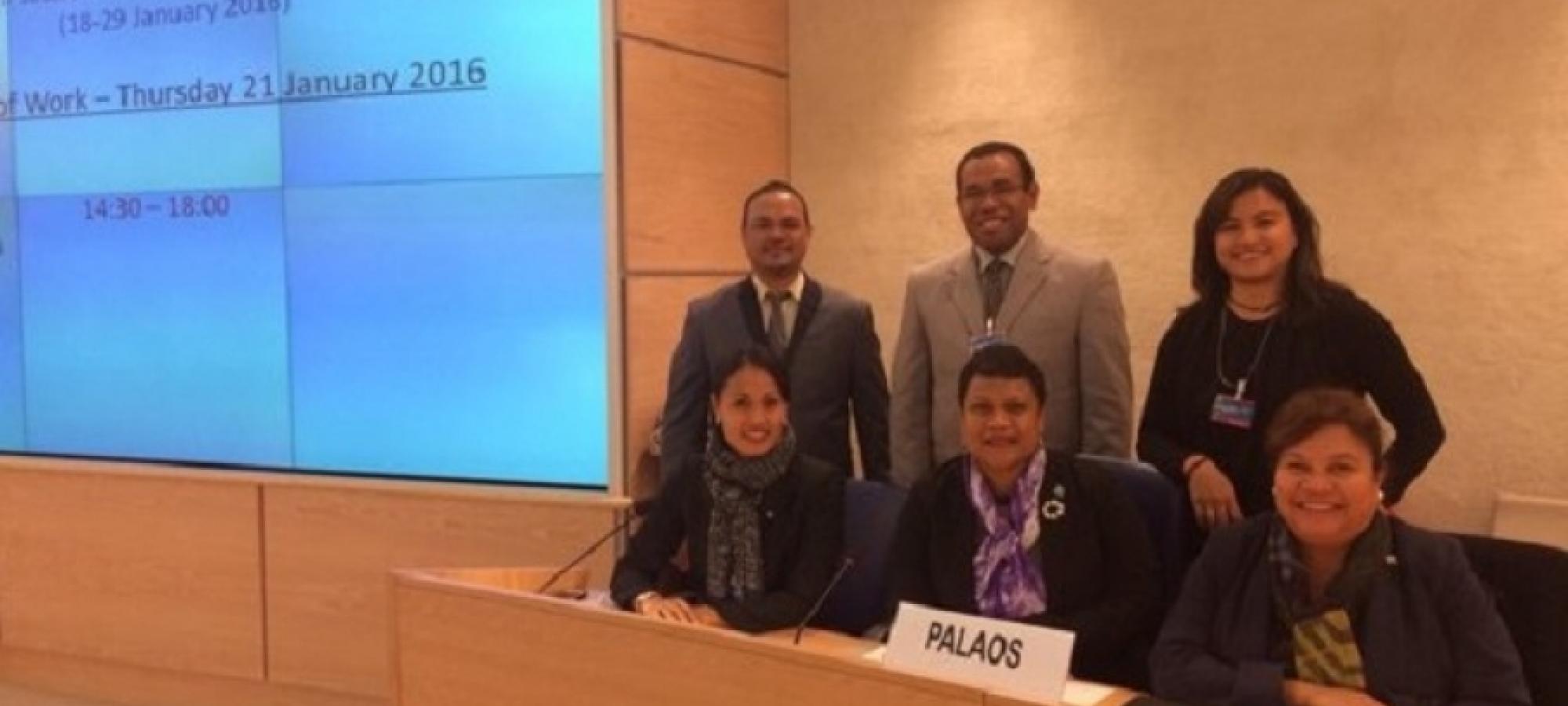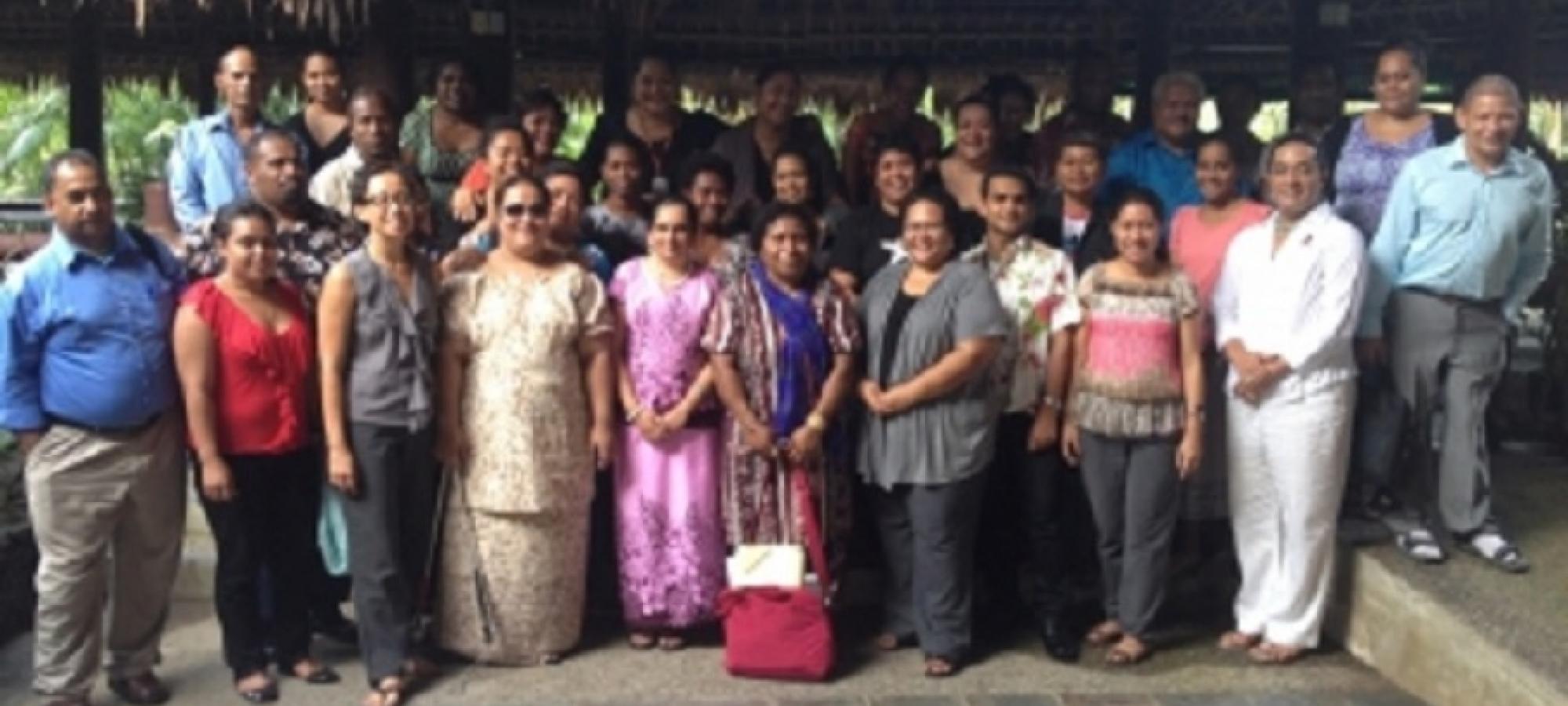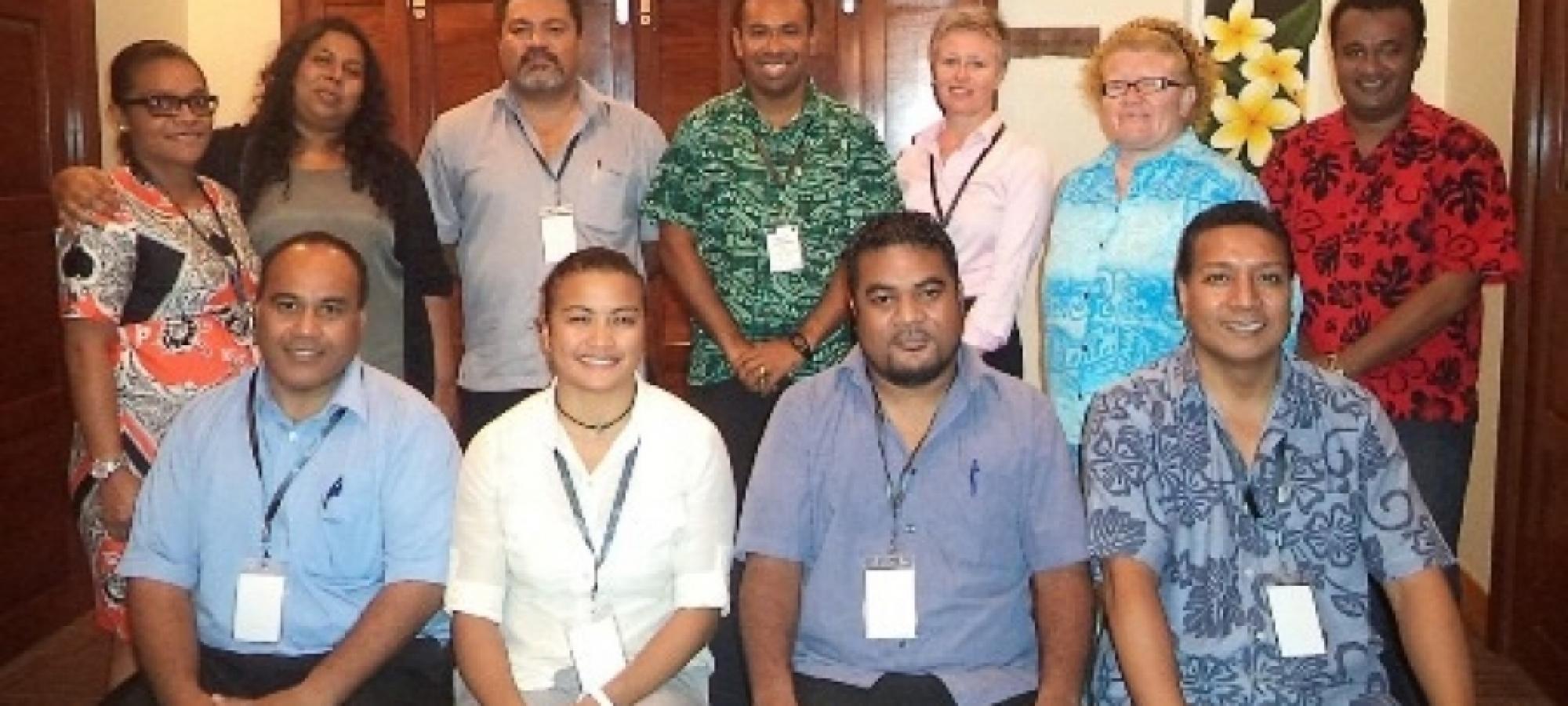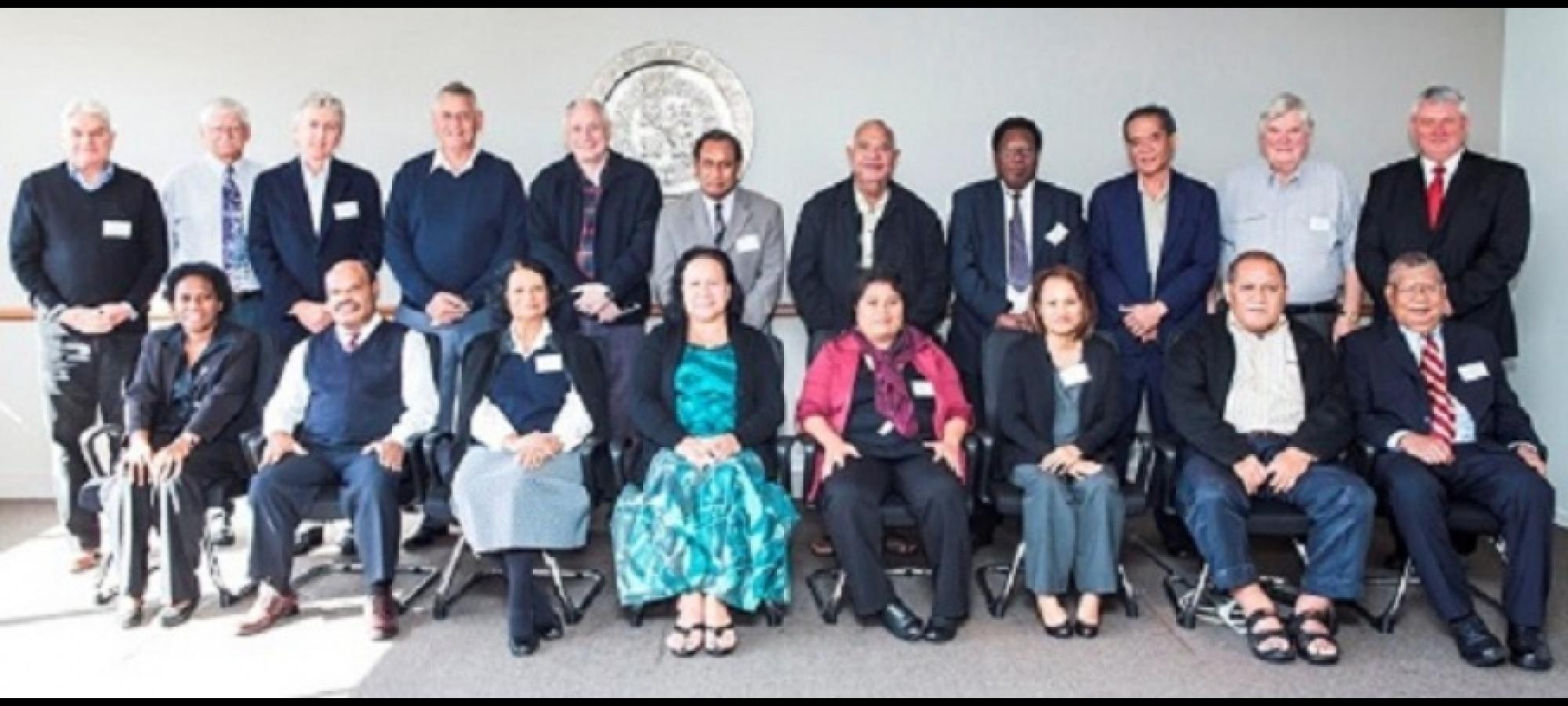Palau and Solomon Islands prepare for UN Human Rights Council reviews

The Pacific Community (SPC) is assisting the governments of Palau and Solomon Islands with preparations for their respective Universal Periodic Reviews by the United Nations Human Rights Council this month in Geneva, Switzerland.
The Universal Periodic Review (UPR) mechanism allows UN Member States to declare their actions taken to improve human rights in their countries and to fulfil their human rights obligations.
Palau was reviewed by the UN Council today in Geneva.
Its delegation was led by their Minister for Community and Cultural Affairs, the Hon Baklai Temengil Chilton, and accompanied by an SPC Human Rights Advisor, Romulo Nayacalevu.
SPC organised a mock session for the Palauan delegation earlier this week in Geneva ahead of today’s review.
According to Mr Nayacalevu: “Palau has been preparing for months for this report including submitting its report to Parliament before its final endorsement and transmission to the UN Human Rights Secretariat in Geneva.
“This is the first time a UPR report has been submitted to Palau’s Parliament, as well as any Parliament in the Pacific. As such, Palau’s report has the support of the people of Palau through their elected representatives,” he said.
Meanwhile, SPC’s Regional Rights Resource Team, in partnership with the Office of the High Commissioner of Human Rights, presented a mock session for the Solomon Islands delegation in Sydney, Australia, on Wednesday.
The Solomon Islands’ delegation, led by their Minister of Foreign Affairs, the Hon Milner Tozaka, was en route to Geneva for their review, due to take place next Tuesday (26 January).
The UPR process highlights positive human rights developments and challenges in countries, and at the same time enhances dialogue with the international community, often resulting in prioritising actions to address the crucial human rights issues in those countries.
This is the second time Palau and Solomon Islands are reporting to the UN Human Rights Council through this process.
In 2015, SPC provided technical assistance to government and civil society groups in Kiribati, Nauru, Papua New Guinea, Samoa, Palau and Solomon Islands, in preparation for their respective reviews.
Samoa and Papua New Guinea will also be reviewed before the Human Rights Council this year - the final Pacific Island states to be reviewed under the Second Cycle of the UPR (2012–2016), also with technical support from SPC’s Regional Rights Resource Team.
SPC supports all 22 Pacific Island member countries and territories in building a culture of human rights, and assists nation states to commit to, and observe, international human rights standards. This work is funded by the Kingdom of the Netherlands and the Government of Australia.
Media contact: Jilda Shem, SPC Communications Officer, RRRT, +679 330 5994, [email protected].









